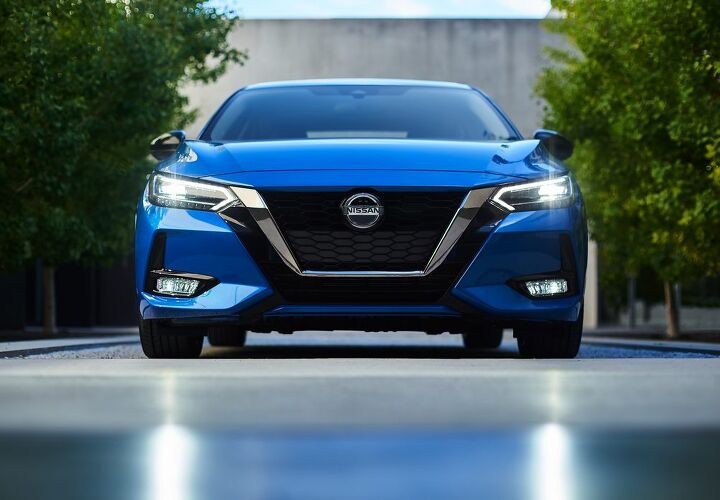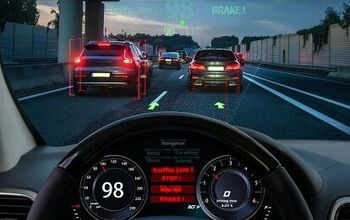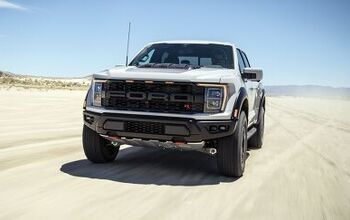Nissan Flees Fleet Reliance With 2020 Sentra

While fleet participation helped Nissan boost its sales volume for years, management feels it hasn’t done the company any favors in terms of profitability. As such, the company says it wants to take the 2020 Sentra out of the rental circuit. If you borrow a vehicle from rental agencies more than never, you’ve probably noticed Nissan’s compact sedan is often the default choice when the supply of Chevrolet Sonics or Toyota Corollas dries up.
Expect less of this moving forward, but be warned it’s not the dream scenario you envisioned. First off, there will undoubtedly be leftover 2019 models on rental lots for some time. Secondly, Nissan improved the 2020 Sentra to a point where you might actually prefer it. The manufacturer made no small effort effort to shore up the sedan’s ride quality, handling, comfort, tech and visual aesthetics for the new generation — succeeding rather well, according to our own Tim Healey. It also has a new 2.0-liter motor offering superior vigor versus its anemic 1.8-liter predecessor. With more on offer, Nissan figured it was a better idea to try it out on customers first, rather than assuming its rightful place is in a rental fleet.
Sentra’s placement as a budget-focused sedan will assuredly bring it back into the rental fold eventually; still, Nissan’s plan to restore profitability involves balancing fleet and retail sales a little better. Around one-third of the model’s U.S. volume went toward the fleet market last year. According to brand manager Rob Warren, that number will be zero for 2020, with the car seeing lower fleet sales even after it’s made available to rental agencies.
“As we are moving into a new direction with the company, we are making sure that we have a healthy balance of fleet with retail,” Warren explained to Automotive News.
Bent on trying to improve overall appeal, Nissan plans to finish refreshing the majority of its lineup as quickly as possible — and dumping them all on rental companies isn’t the straightest route into the hearts of consumers, who are prone toward making negative assumptions about fleet darlings. While yours truly has personally purchased automobiles specifically because of that status (Ford Panther platform, baby), such buys rarely support new car sales in any significant number.
The Sentra’s role as a traditional passenger car does pose a few problems, however. While the enhancements made for the 2020 model year does plenty to make the car more desirable, it still faces healthy competition from rival manufacturers. It’s also operating at a disadvantage in today’s retail market simply by not being a crossover.
From Automotive News:
The strategy shift will not be without challenges. Nissan’s pivot to retail is taking place as the U.S. market drifts away from sedans in favor of crossovers and SUVs.
Compact sedan sales fell 15 percent last year, compared with a 2.4 percent increase in crossover and SUV sales, according to the Automotive News Data Center. Sentra sales tumbled 13 percent to 184,618 last year as the model prepared for a changeover.
“Combined with the lack of fleet sales, the 2020 Sentra may not be able to match the prior generation’s volumes,” said Ed Kim, an analyst with AutoPacific.
But Nissan believes its decision to move away from fleet will not affect Sentra production volume in North America because the vehicle is sold globally. The car is manufactured in Mexico.
Sounds like Nissan isn’t ruling out fleet sales in other parts of the world — something Warren confirmed. “Just because we might fluctuate between retail and fleet balance here in the U.S., it doesn’t necessarily mean that that production volume all has to go to retail,” he said. “We manage this car on a global basis.”
We think Nissan has done a lot to improve the Sentra for the 2020 model year. The new 2.0-liter (149 hp and 145 lb-ft) was an absolute necessity for the U.S. market; the car now seems to be worth a second look. But it’s difficult to believe it won’t eventually return as a regular in the Manager’s Special. At least we’ll feel better about it when we come off a flight only to be told it’s the vehicle we’ll be spending the weekend with. For the first time in a long time, we’ll be able to shrug it off, knowing it could have been much worse.
[Images: Nissan]

A staunch consumer advocate tracking industry trends and regulation. Before joining TTAC, Matt spent a decade working for marketing and research firms based in NYC. Clients included several of the world’s largest automakers, global tire brands, and aftermarket part suppliers. Dissatisfied with the corporate world and resentful of having to wear suits everyday, he pivoted to writing about cars. Since then, that man has become an ardent supporter of the right-to-repair movement, been interviewed on the auto industry by national radio broadcasts, driven more rental cars than anyone ever should, participated in amateur rallying events, and received the requisite minimum training as sanctioned by the SCCA. Handy with a wrench, Matt grew up surrounded by Detroit auto workers and managed to get a pizza delivery job before he was legally eligible. He later found himself driving box trucks through Manhattan, guaranteeing future sympathy for actual truckers. He continues to conduct research pertaining to the automotive sector as an independent contractor and has since moved back to his native Michigan, closer to where the cars are born. A contrarian, Matt claims to prefer understeer — stating that front and all-wheel drive vehicles cater best to his driving style.
More by Matt Posky
Latest Car Reviews
Read moreLatest Product Reviews
Read moreRecent Comments
- Syke F1 fan and normally watch every race, although most of them are DVR'd. I've got my Xfinity box set up to record everything automatically. This past Sunday I watched the race live for a change.
- Jalop1991 There is no inflation. Everything is cheaper than it was 5 years ago. SHRIMP AND GRITS!
- ChristianWimmer Exterior and interior look pretty flawless for such a high mileage car. To me this is an indication that it was well-maintained and driven responsibly. It’s not my cup of tea but it’s bound to find an enthusiastic owner out there.And with ANY car, always budget for maintenance.
- Fred I'm a fan and watch every race. I've missed a few of the live races, but ESPN repeats them during more reasonable hours.
- Mikesixes It has potential benefits, but it has potential risks, too. It has inevitable costs, both in the price of the car and in future maintenance. Cars with ABS and airbags have cost me at least 2000 bucks in repairs, and have never saved me from any accidents. I'd rather these features were optional, and let the insurance companies figure out whether they do any good or not, and adjust their rates accordingly.







































Comments
Join the conversation
If there was an optional engine offered on the upper trim, like a 1.6T that came on a prior Nismo version of the Sentra, we would be less focused on the lackluster CVT. Also, for this new 2.0NA, it has less power than the Corolla with the 2.0NA, and the car overall is slower than the old Sentra SE-R with a 2.0NA. Not really keeping up with the competition.
Until Nissan makes a more reliable CVT then it doesn't really matter what engine is in their cars.